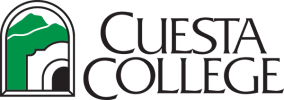
Program Summary
EARLY CHILDHOOD EDUCATION - Associate in Arts
The Early Childhood Education Associate of Arts Degree provides a solid foundation for students entering the education field and prepares students to work with children from infancy into middle childhood in a variety of environments.
The core eight courses (201, 202, 203, 204, 205, 206, 215 and 216) match the California Commission on Teacher Credentialing Teacher Permit Early Childhood Education course requirements. Students who complete coursework at this level (the core eight, of the nine required courses) will receive a Child Development Teacher Certificate of Achievement from Cuesta College. Students need an additional 16 units of General Education to meet the Child Development Teacher Permit Education Requirement.
The Early Childhood Education Associate Degree courses (201, 202, 203, 204, 205, 206, 215, 216 and 245) with the additional six specialization units match the California Commission on Teacher Credentialing Master Teacher Permit Early Childhood Education course requirements. Students who complete coursework at this level will receive a Child Development Master Teacher Certificate of Achievement from Cuesta College. Students need an additional 16 units of General Education to meet the Child Development Master Teacher Permit Education Requirement.
The Early Childhood Associate Degree and an additional six administration units (ECE 246 and 248) included in the Site Supervisor Certificate of Achievement match the California Commission on Teacher Credentialing Site Supervisor Permit Early Childhood Education course requirements.